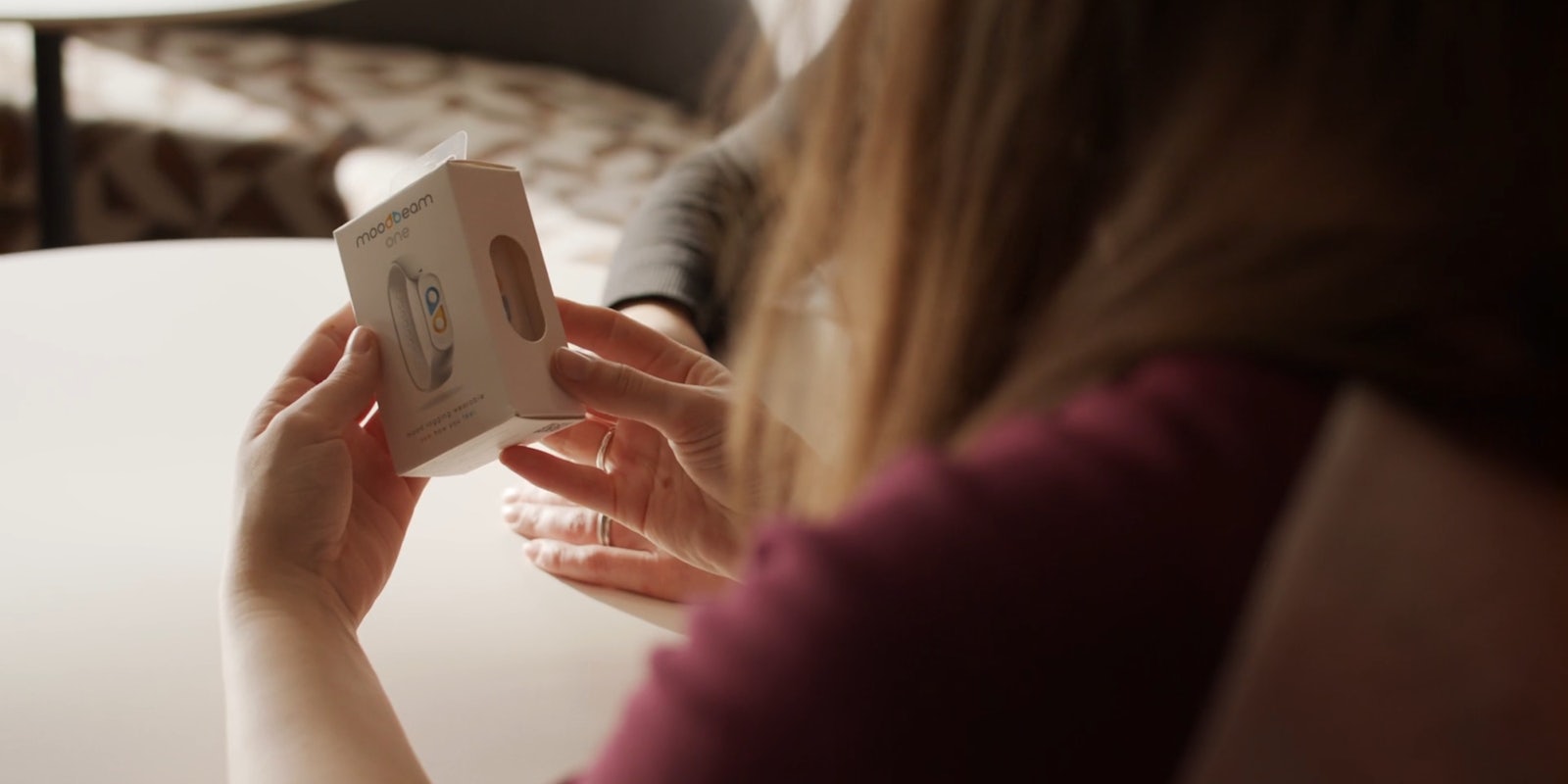Analysis
Feeling down at work? Press a button, and let your boss know. That’s the idea behind Moodbeam One, a wearable wristband that gives employers identifiable data about their employees’ mental state.
“Moodbeam One is the first wearable device that logs how we feel, at the push of a button,” U.K. startup Moodbeam advertises on its website. “Press yellow when you’re feeling positive, blue when you’re feeling negative. As well as happiness, you can use Moodbeam to measure pain, happiness or your level of motivation.”
Moodbeam’s real power comes from its corporate capabilities. As the site’s slideshow presentation explains, the Moodbeam One and its official Moodbeam app lets companies check how individual employees are doing based on their button pushes. This lets supervisors graph how happy (or unhappy) workers feel over time and compare how individuals and teams are performing compared to one another.
The wristband encourages this data tracking by “gently” reminding users to “log how they’re feeling at set times throughout the day.” The Moodbeam One also has a sensor that determines whether employees are wearing the device.
“Businesses are trying to get on top of staying connected with staff working from home,” Moodbeam’s co-founder Christina Colmer McHugh told the BBC. “Here they can ask 500 members: ‘You ok?’ without picking up the phone.”
In theory, the Moodbeam ecosystem is supposed to help companies check in on their staffers during the pandemic, the BBC reports. Employees are simply “encouraged” to wear the Moodbeam One, and “they can say no,” the U.K. news agency notes.
But this is only in theory. In reality, surveillance technology over employees’ bodies is a growing trend in the American workplace. Slate’s Natalie Chyi warns that companies have increasingly rolled out invasive employee tracking technology during the pandemic, often under the guise of combating COVID-19. These include “productivity” trackers and apps for self-reporting employees’ health, biometric data collectors, location tracking, and even lanyards that monitor whether employees “washed their hands or used hand sanitizer.”
The nonprofit Electronic Frontier Foundation (EFF) warns that COVID-based surveillance technology at work poses “severe threats” to workers’ privacy and rights. Employer-operated contract tracing software could “stifle workers’ freedom to associate, even safely, and enable turkey union-busting,” the foundation says. With contemporary labor power suppressed in the U.S., both Chyi and the EFF pinpoint how data tracking technology is de facto mandatory. In the contemporary American workplace, workers are unable to opt out of constant surveillance from their bosses.
“Labor is rarely in a position of bargaining power in the workplace due to the United States’ at-will employment model, and that power imbalance has become increasingly skewed as job security feels precarious and jobless claims have seen a 3,000 percent increase,” Chyi writes. “Additionally, people have extremely limited privacy rights in their capacities as workers. Though there are stricter regulations regarding the collection and use of health information and other sensitive categories, employers are generally legally permitted to collect most types of data from their workers so long as there is a legitimate business reason.”
Moodbeam says its mood-tracking ecosystem can lead to “increased productivity,” “improved retention,” “reduced absenteeism,” and “improved wellbeing.” As work from home continues throughout the coronavirus pandemic, expect more companies to collect as much information from their employees as possible, including surveilling their feelings throughout the day.
“While employers must do what they can to keep their workers safe,” the EFF writes, “such efforts should not come at the price of undermining workers’ privacy.”
The Daily Dot reached out to Moodbeam for comment.
Today’s top stories
| ‘Fill her up’: Bartender gives woman a glass of water when the man she’s with orders tequila shot |
| ‘I don’t think my store has even sold one’: Whataburger employees take picture with first customer who bought a burger box |
| ‘It was a template used by anyone in the company’: Travel agent’s ‘condescending’ out-of-office email reply sparks debate |
| Sign up to receive the Daily Dot’s Internet Insider newsletter for urgent news from the frontline of online. |
H/T BBC


